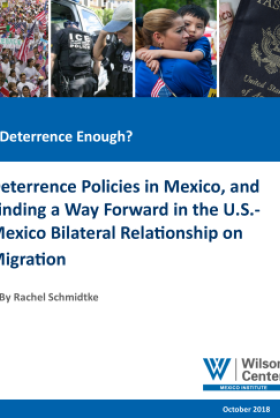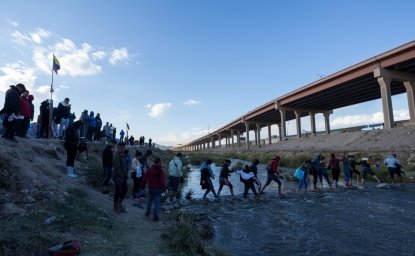Is Deterrence Enough? Deterrence Policies in Mexico, and Finding a Way Forward in the US-Mexico Bilateral Relationship on Migration


Deterrence strategies, such as deportation and detention, are a component of the United States and Mexico’s bilateral strategy to manage migratory flows from Central America. While deterrence strategies have had some success in the United States in deterring migrants from Mexico, there is little evidence to show that they have effectively reduced the rates of migration from the Northern Triangle. Recently, President Trump and President-Elect Andrés Manuel López Obrador have discussed policy options for migration management, including increased deportation funding as well as an economic development plan. The incoming Mexican administration does not seem to favor deterrence policies, so in order to find a path forward in the United States and Mexico bilateral relationship, it is important to explore other avenues for collaboration on migration.
This essay discusses the effectiveness of deterrence as a migration management strategy, and moves beyond deterrence to explore other policy alternatives that would be feasible and yield positive benefits for Mexico and the United States. Beyond border enforcement, Mexico can consider three other policy options: increasing legal avenues and integration measures for Central American migrants, increasing and targeting economic development funding, or rejecting the traditional cooperation with the United States in favor of an autonomous strategy. Weighing the pros and cons of each strategy, this essay lays out recommendations for consideration. These strategies could ensure Mexico remains a committed partner in migration management.
Author

Advocate for Latin America, Refugees International

Mexico Institute
The Mexico Institute seeks to improve understanding, communication, and cooperation between Mexico and the United States by promoting original research, encouraging public discussion, and proposing policy options for enhancing the bilateral relationship. A binational Advisory Board, chaired by Luis Téllez and Earl Anthony Wayne, oversees the work of the Mexico Institute. Read more






